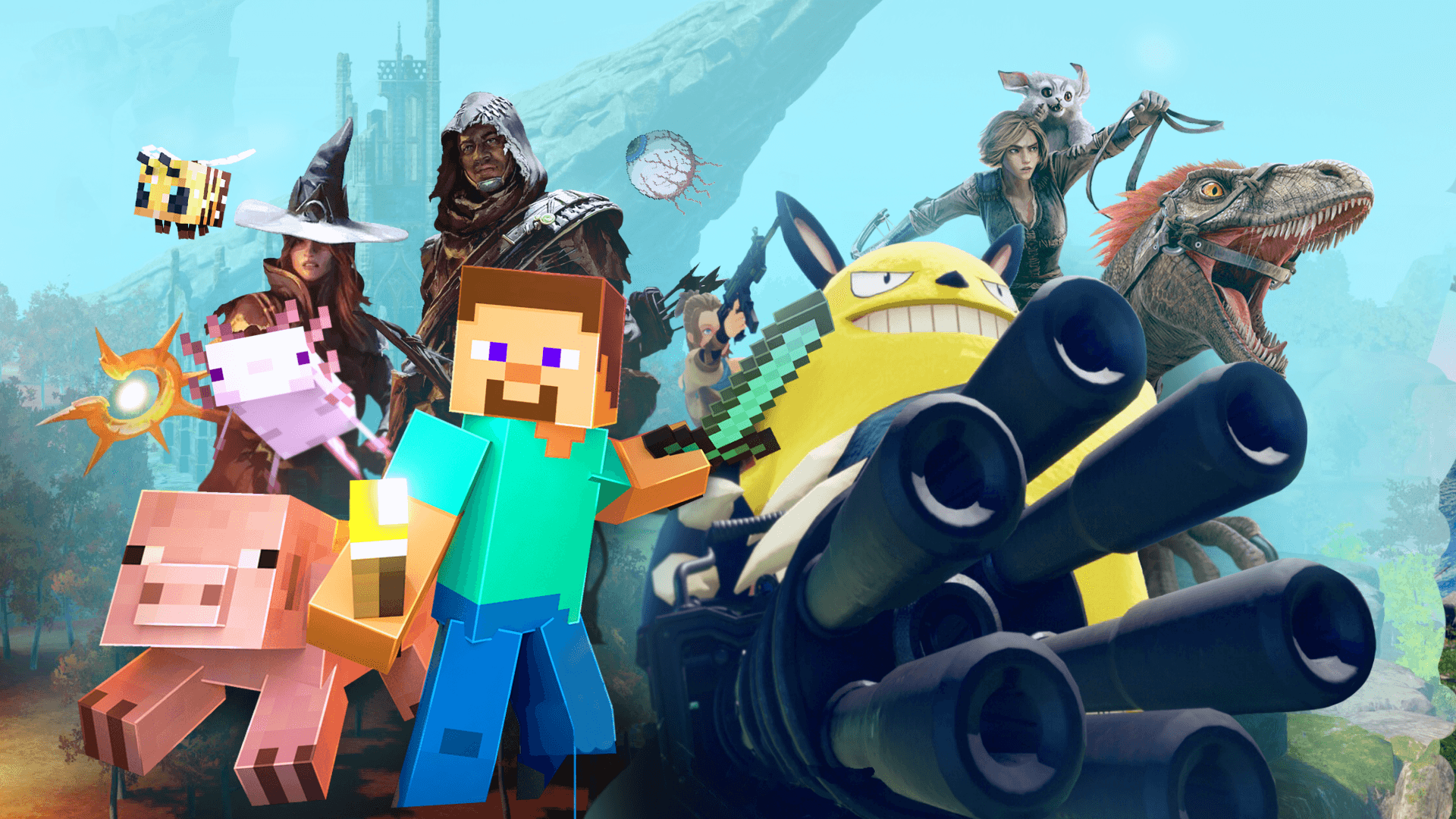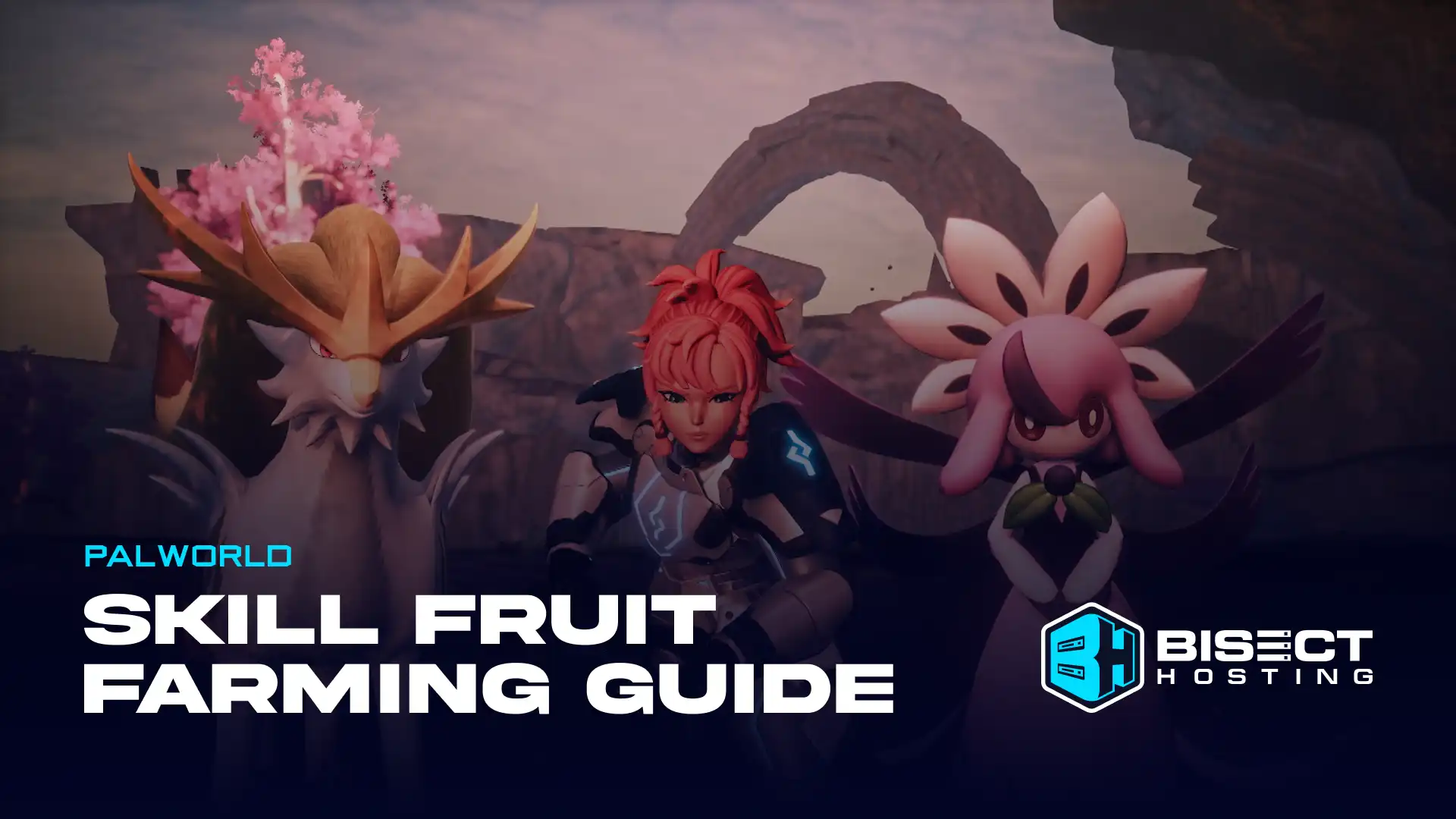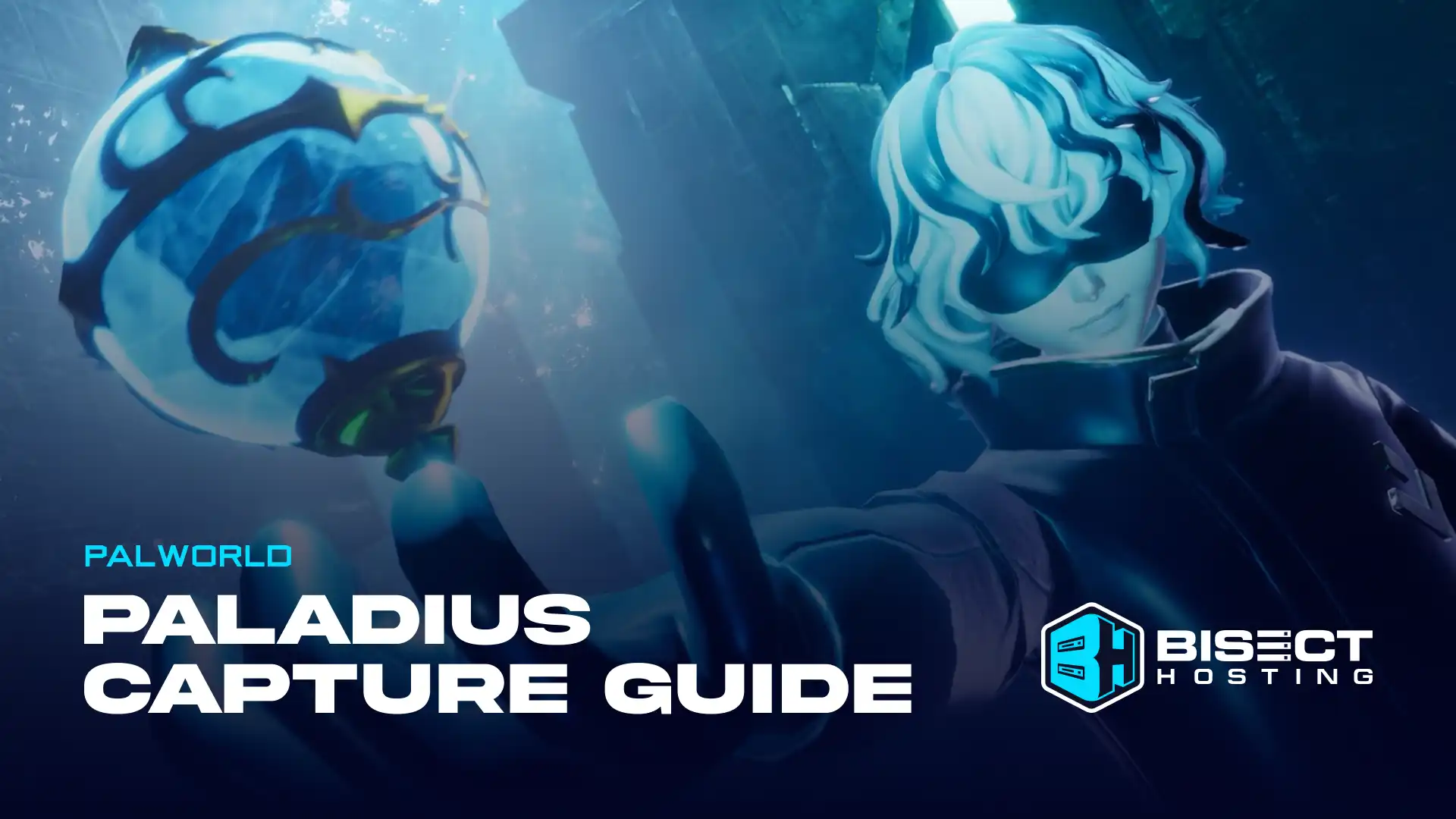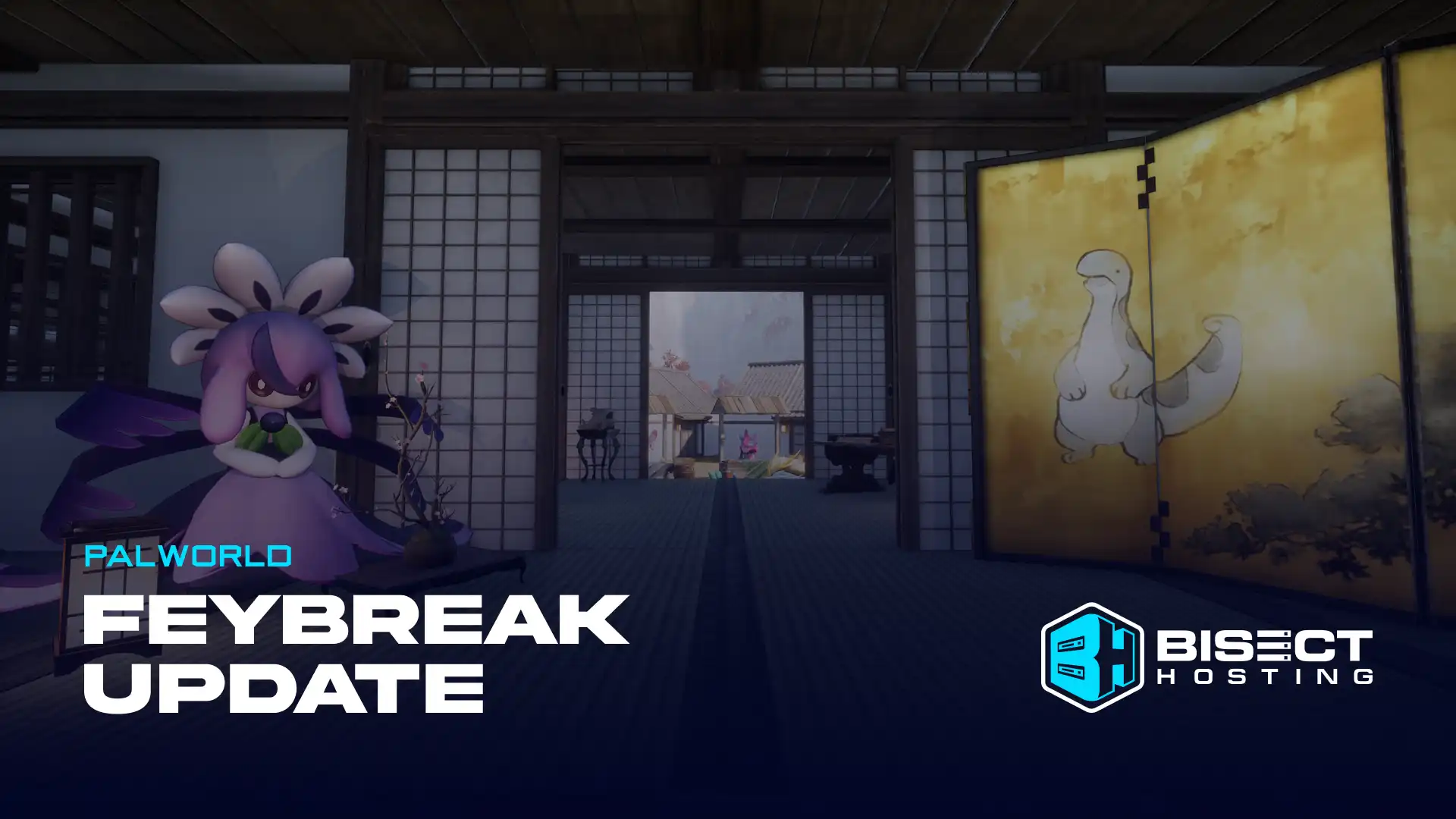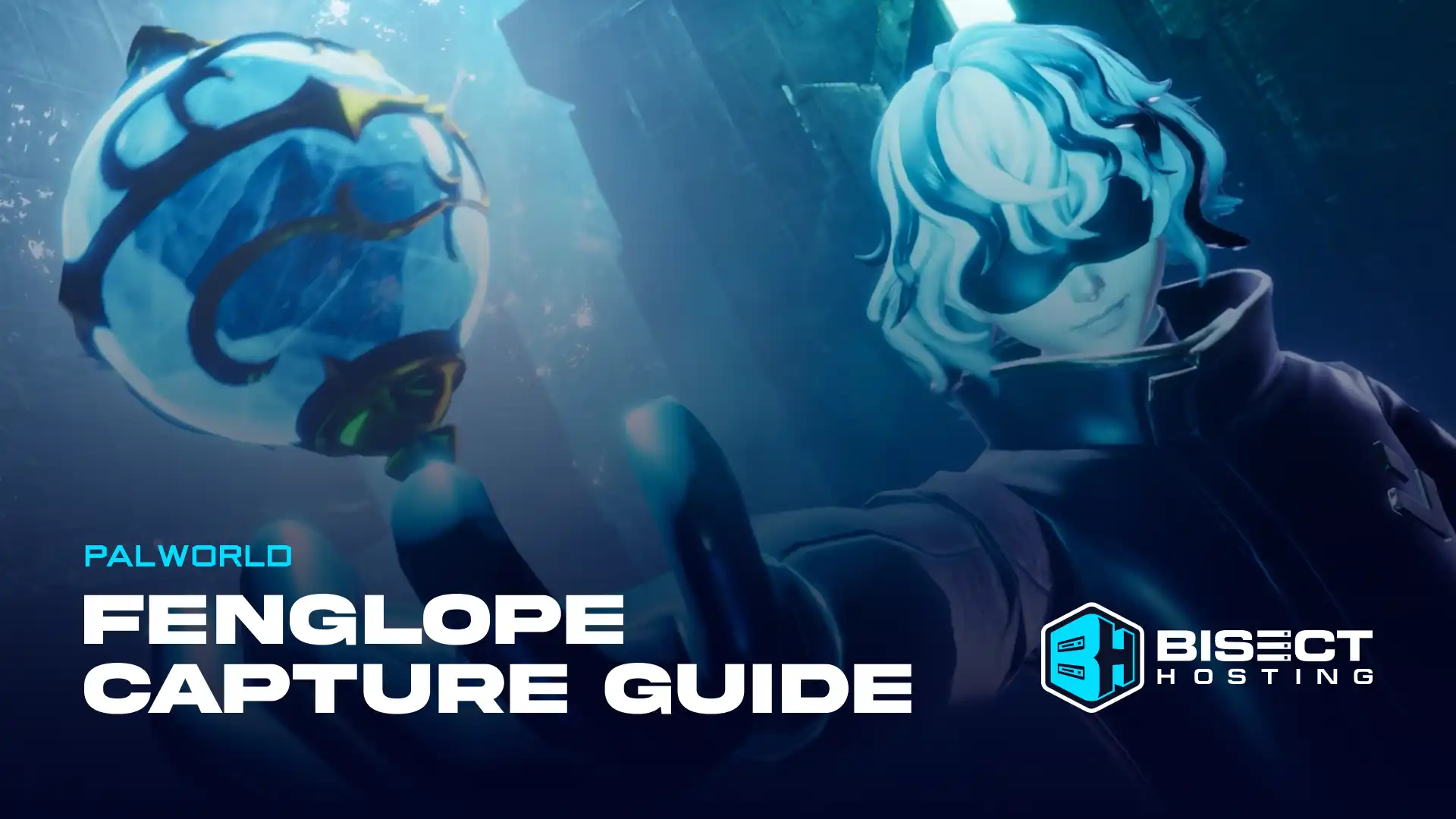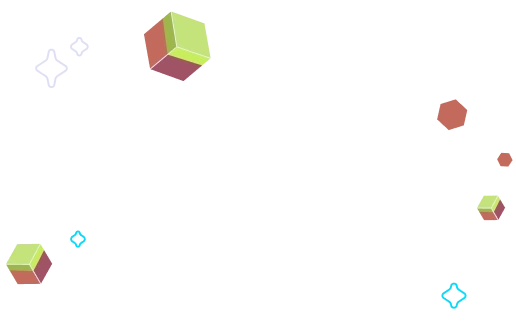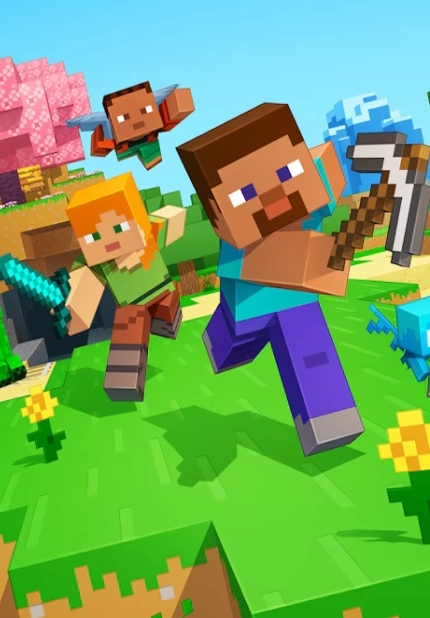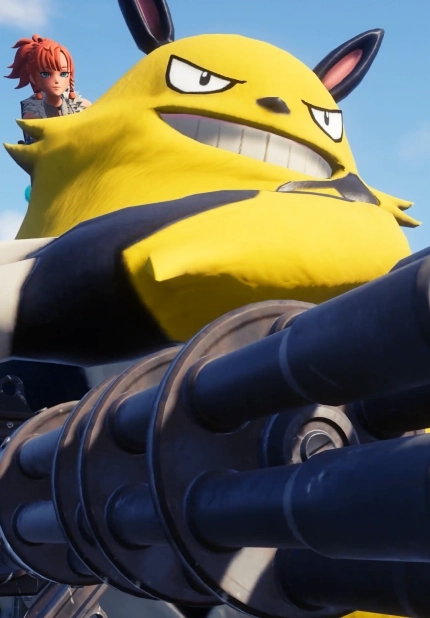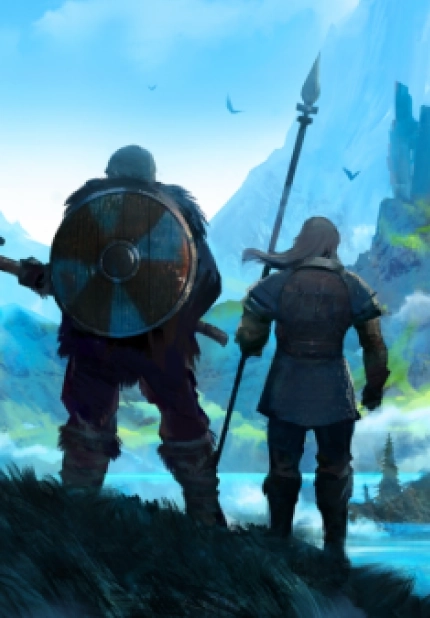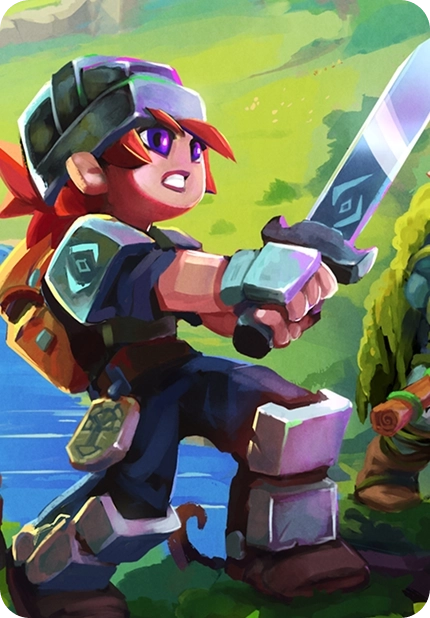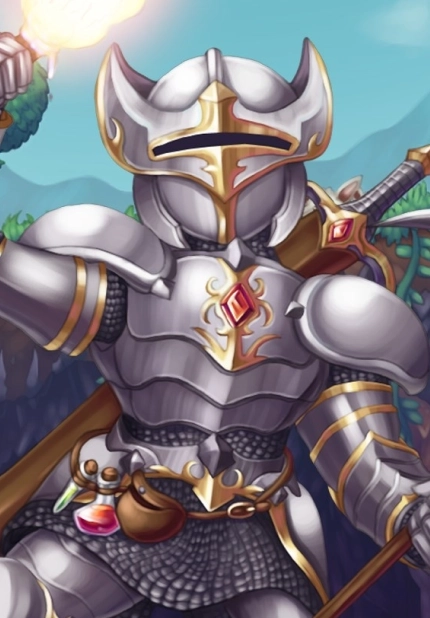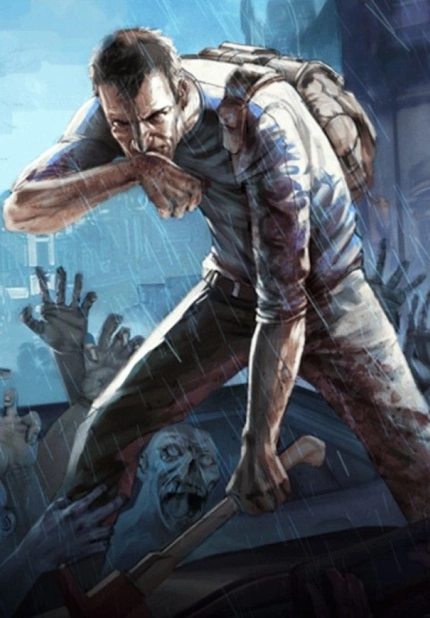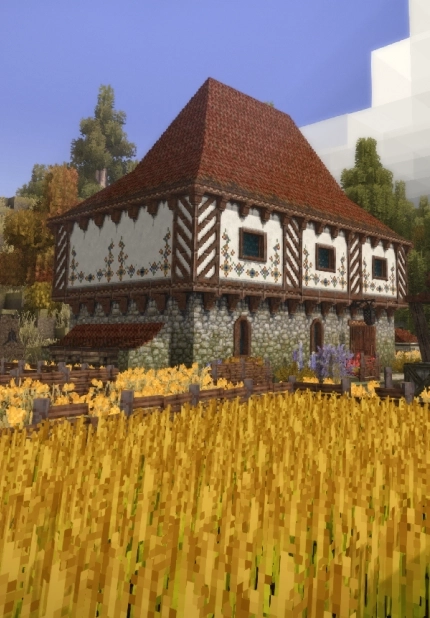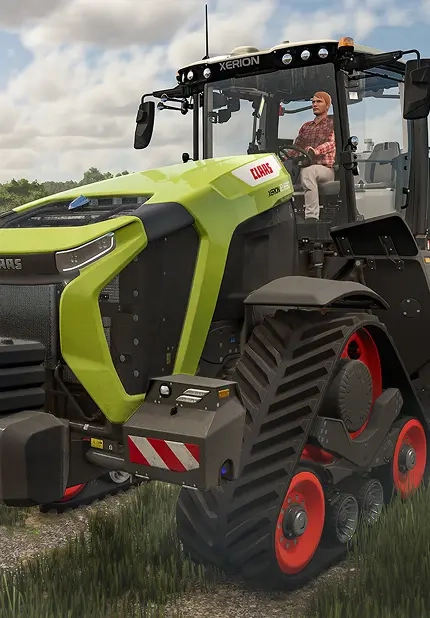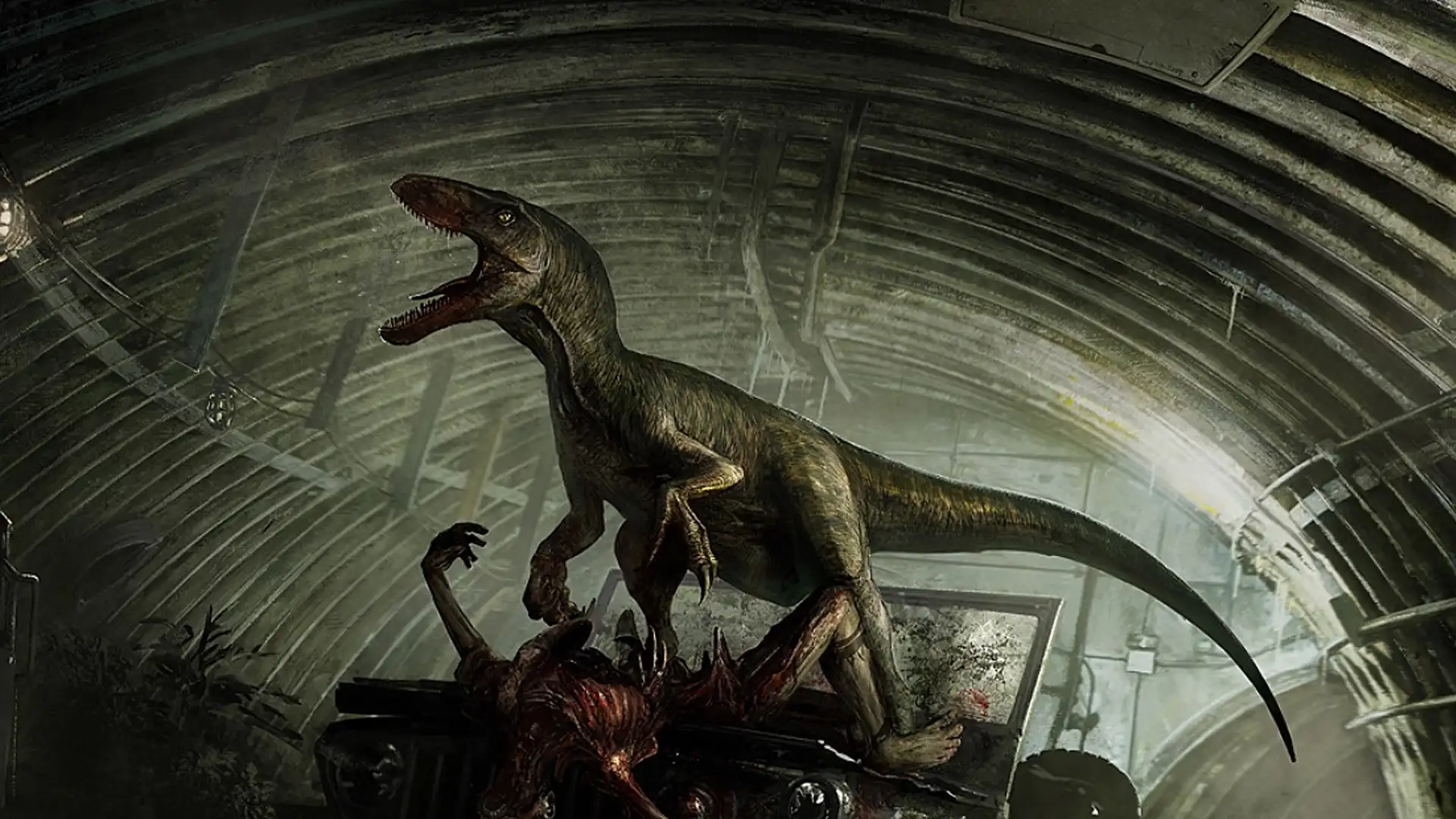
The Isle Pteranodon Guide: How to Play, Controls, Diet, Combat, Tips, & More
Posted on by
The Pteranodon was a Late Cretaceous pterosaur from North America. Its large wingspan and toothless jaws made it a great fish hunter from the sky. While predominantly a fish-eater, it generally relies on keen eyesight to pursue its prey while airborne. These qualities carry on to its counterpart in The Isle, and we’re here to help you control, survive, and win as a Pteranodon in this dinosaur-themed action survival title.
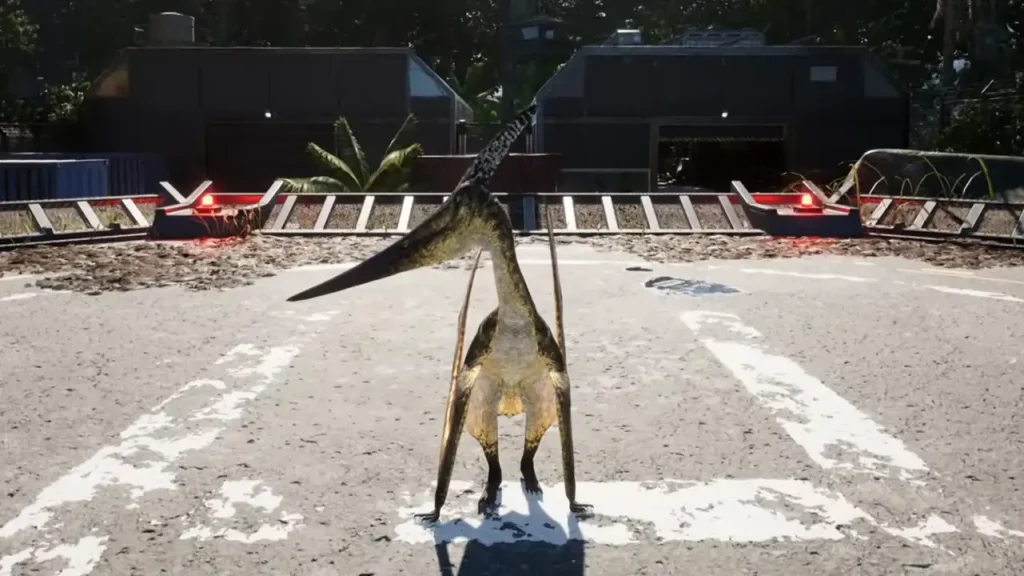 Master the art of combat, flight, and survival in this guide as a Pteranodon in The Isle. Below, you'll learn different strategies and techniques focused on this ancient flyer's growth, flight controls, and more!
Master the art of combat, flight, and survival in this guide as a Pteranodon in The Isle. Below, you'll learn different strategies and techniques focused on this ancient flyer's growth, flight controls, and more!
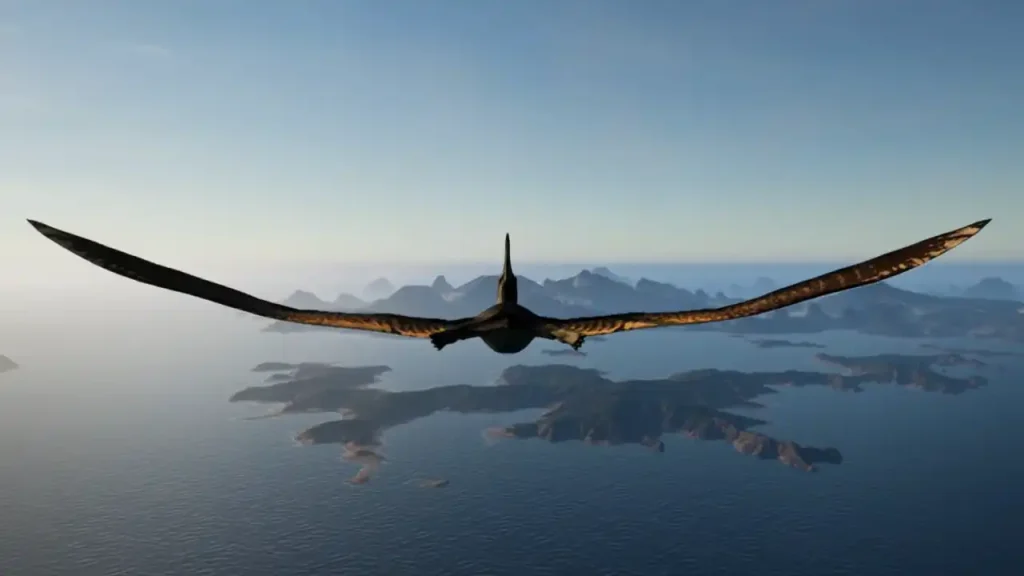 Unlike its prehistoric variant, the Pteranodon in The Isle is one of the fastest-growing creatures in the game. With a 30-minute growth time, players can generally skip eating or drinking until adulthood.
However, due to its low health and defenses, most predators can easily kill this pterosaur. So, players choosing this ancient flyer must do everything possible to survive this 30-minute growth period. Thankfully, many fairly hidden Pteranodon hunting and drinking spots exist on The Isle’s maps.
But watch out for hiding Deinosuchus. You don’t want to get caught between the jaws of this giant aquatic reptile when diving for fish. Use a camera clip to hear nearby movements of predators, which may include a Deinosuchus, minimizing danger during fish hunts.
So, the success of your hunts and survival excursions typically relies on your mastery of maneuvering the Pteranodon’s controls while flying. Below, you’ll learn some general things to consider when controlling this flyer:
Unlike its prehistoric variant, the Pteranodon in The Isle is one of the fastest-growing creatures in the game. With a 30-minute growth time, players can generally skip eating or drinking until adulthood.
However, due to its low health and defenses, most predators can easily kill this pterosaur. So, players choosing this ancient flyer must do everything possible to survive this 30-minute growth period. Thankfully, many fairly hidden Pteranodon hunting and drinking spots exist on The Isle’s maps.
But watch out for hiding Deinosuchus. You don’t want to get caught between the jaws of this giant aquatic reptile when diving for fish. Use a camera clip to hear nearby movements of predators, which may include a Deinosuchus, minimizing danger during fish hunts.
So, the success of your hunts and survival excursions typically relies on your mastery of maneuvering the Pteranodon’s controls while flying. Below, you’ll learn some general things to consider when controlling this flyer:
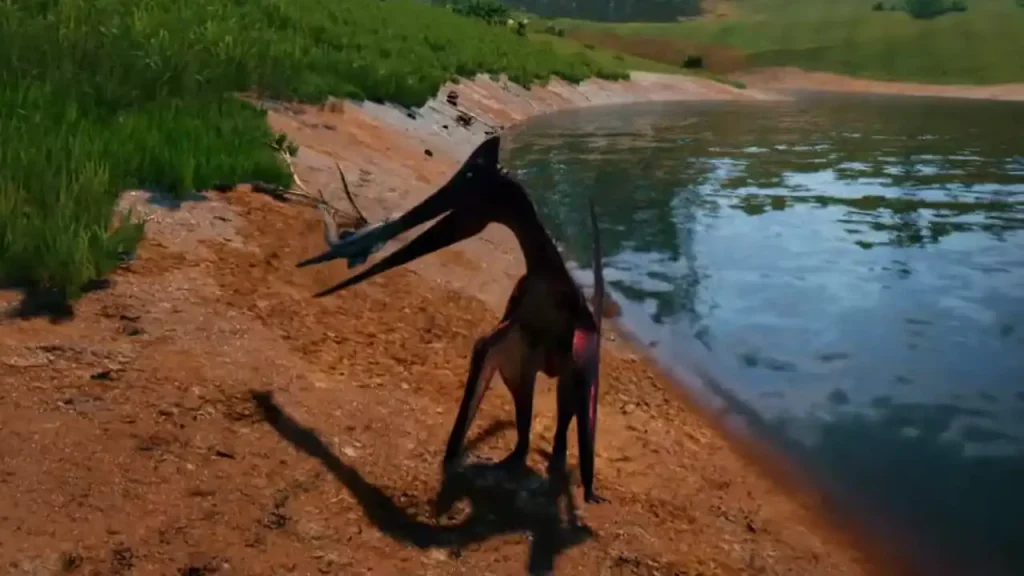 Arguably, fishing is the primary method of gathering and consuming food, as a Pteranodon in The Isle. However, don't dive in random spots, or you'll be between a Deinosuchus’ jaws in no time.
Instead, look for bubbling ripples in bodies of water, such as lakes and rivers. Then, glide above the water while holding the right mouse button (by default) to dip your beak. Release the right mouse button to catch fish.
However, timing is crucial when closing your beak. Otherwise, you’ll have to circle the area again. Also, don’t be afraid to drop the fish (press G by default) when pursued by a Deinosuchus. Doing so can help distract the reptile, allowing you to fish and fight another day.
Like other creatures in The Isle, a Pteranodon must have its fair share of proteins, lipids, and carbohydrates. Below, you’ll find the ideal foods to consume to ensure your Pteranodon stays full and healthy:
Arguably, fishing is the primary method of gathering and consuming food, as a Pteranodon in The Isle. However, don't dive in random spots, or you'll be between a Deinosuchus’ jaws in no time.
Instead, look for bubbling ripples in bodies of water, such as lakes and rivers. Then, glide above the water while holding the right mouse button (by default) to dip your beak. Release the right mouse button to catch fish.
However, timing is crucial when closing your beak. Otherwise, you’ll have to circle the area again. Also, don’t be afraid to drop the fish (press G by default) when pursued by a Deinosuchus. Doing so can help distract the reptile, allowing you to fish and fight another day.
Like other creatures in The Isle, a Pteranodon must have its fair share of proteins, lipids, and carbohydrates. Below, you’ll find the ideal foods to consume to ensure your Pteranodon stays full and healthy:
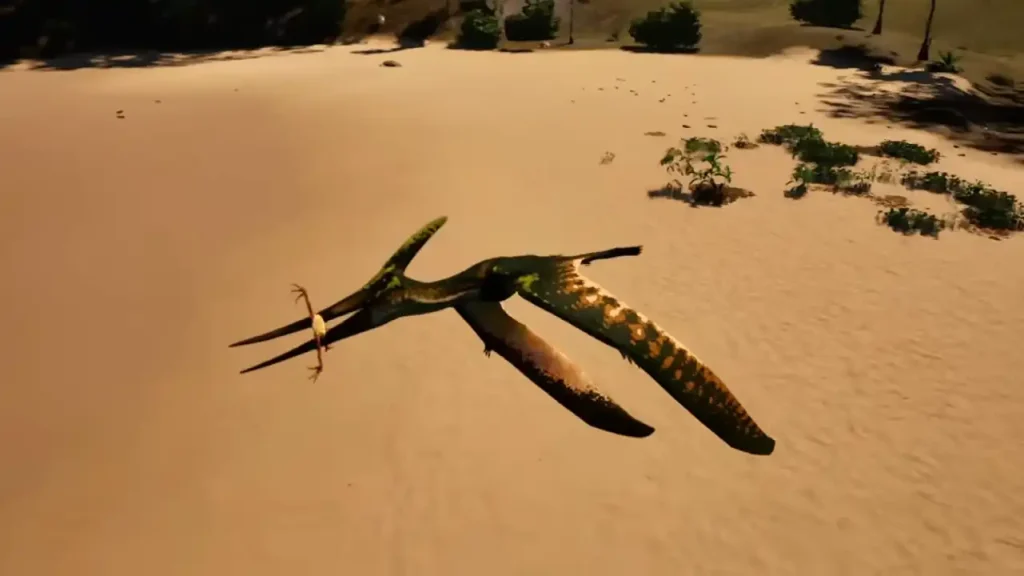 Although relatively weak in attacking power, the Pteranodon in The Isle isn't as feeble as some players might think. It’s a formidable carnivore often underestimated. Embrace the Pteranodon’s strengths and dominate the landscape.
Since you’ll be a full-fledged adult in about 30 minutes, quickly search the map for baby dinosaurs. Defeat the infants to cull threats before they become reasonable hazards.
Also, use your air brakes for better maneuvering when striking from above. Remember to stay attuned to your surroundings to avoid unnecessary crashes.
Although relatively weak in attacking power, the Pteranodon in The Isle isn't as feeble as some players might think. It’s a formidable carnivore often underestimated. Embrace the Pteranodon’s strengths and dominate the landscape.
Since you’ll be a full-fledged adult in about 30 minutes, quickly search the map for baby dinosaurs. Defeat the infants to cull threats before they become reasonable hazards.
Also, use your air brakes for better maneuvering when striking from above. Remember to stay attuned to your surroundings to avoid unnecessary crashes.
How to Play as the Pteranodon in The Isle
 Master the art of combat, flight, and survival in this guide as a Pteranodon in The Isle. Below, you'll learn different strategies and techniques focused on this ancient flyer's growth, flight controls, and more!
Master the art of combat, flight, and survival in this guide as a Pteranodon in The Isle. Below, you'll learn different strategies and techniques focused on this ancient flyer's growth, flight controls, and more!
Basics & Controls
 Unlike its prehistoric variant, the Pteranodon in The Isle is one of the fastest-growing creatures in the game. With a 30-minute growth time, players can generally skip eating or drinking until adulthood.
However, due to its low health and defenses, most predators can easily kill this pterosaur. So, players choosing this ancient flyer must do everything possible to survive this 30-minute growth period. Thankfully, many fairly hidden Pteranodon hunting and drinking spots exist on The Isle’s maps.
But watch out for hiding Deinosuchus. You don’t want to get caught between the jaws of this giant aquatic reptile when diving for fish. Use a camera clip to hear nearby movements of predators, which may include a Deinosuchus, minimizing danger during fish hunts.
So, the success of your hunts and survival excursions typically relies on your mastery of maneuvering the Pteranodon’s controls while flying. Below, you’ll learn some general things to consider when controlling this flyer:
Unlike its prehistoric variant, the Pteranodon in The Isle is one of the fastest-growing creatures in the game. With a 30-minute growth time, players can generally skip eating or drinking until adulthood.
However, due to its low health and defenses, most predators can easily kill this pterosaur. So, players choosing this ancient flyer must do everything possible to survive this 30-minute growth period. Thankfully, many fairly hidden Pteranodon hunting and drinking spots exist on The Isle’s maps.
But watch out for hiding Deinosuchus. You don’t want to get caught between the jaws of this giant aquatic reptile when diving for fish. Use a camera clip to hear nearby movements of predators, which may include a Deinosuchus, minimizing danger during fish hunts.
So, the success of your hunts and survival excursions typically relies on your mastery of maneuvering the Pteranodon’s controls while flying. Below, you’ll learn some general things to consider when controlling this flyer:
- The Pterandon’s flight has three parts: launch, ascend, and glide.
- Launching is the most stamina-heavy action of the three steps. Use a running lift-off to consume less stamina than pressing and holding the Spacebar for a quick launch.
- Gliding doesn’t cost stamina, but causes the Pteranodon to slowly descend. Hold the Spacebar (by default) to glide continuously.
- By default, navigate an airborne Pteranodon using the WASD keys. Use CTRL to descend and Z to air-brake.
- Hitting an immovable object, such as a cliff or tree, causes the Pteranodon to stop flying and fall, causing the player to take fall damage.
Diet & Survival
 Arguably, fishing is the primary method of gathering and consuming food, as a Pteranodon in The Isle. However, don't dive in random spots, or you'll be between a Deinosuchus’ jaws in no time.
Instead, look for bubbling ripples in bodies of water, such as lakes and rivers. Then, glide above the water while holding the right mouse button (by default) to dip your beak. Release the right mouse button to catch fish.
However, timing is crucial when closing your beak. Otherwise, you’ll have to circle the area again. Also, don’t be afraid to drop the fish (press G by default) when pursued by a Deinosuchus. Doing so can help distract the reptile, allowing you to fish and fight another day.
Like other creatures in The Isle, a Pteranodon must have its fair share of proteins, lipids, and carbohydrates. Below, you’ll find the ideal foods to consume to ensure your Pteranodon stays full and healthy:
Arguably, fishing is the primary method of gathering and consuming food, as a Pteranodon in The Isle. However, don't dive in random spots, or you'll be between a Deinosuchus’ jaws in no time.
Instead, look for bubbling ripples in bodies of water, such as lakes and rivers. Then, glide above the water while holding the right mouse button (by default) to dip your beak. Release the right mouse button to catch fish.
However, timing is crucial when closing your beak. Otherwise, you’ll have to circle the area again. Also, don’t be afraid to drop the fish (press G by default) when pursued by a Deinosuchus. Doing so can help distract the reptile, allowing you to fish and fight another day.
Like other creatures in The Isle, a Pteranodon must have its fair share of proteins, lipids, and carbohydrates. Below, you’ll find the ideal foods to consume to ensure your Pteranodon stays full and healthy:
- Protein: Crabs and Schooling Fish
- Carbohydrates: Chicken, Hypsilophodon, Bullfrog, Rabbit, and Troodon
- Lipids: Sea Turtle, Psittacosaurus, Beipiaosaurus, and Pterodactylus
Hunting & Combat
 Although relatively weak in attacking power, the Pteranodon in The Isle isn't as feeble as some players might think. It’s a formidable carnivore often underestimated. Embrace the Pteranodon’s strengths and dominate the landscape.
Since you’ll be a full-fledged adult in about 30 minutes, quickly search the map for baby dinosaurs. Defeat the infants to cull threats before they become reasonable hazards.
Also, use your air brakes for better maneuvering when striking from above. Remember to stay attuned to your surroundings to avoid unnecessary crashes.
Although relatively weak in attacking power, the Pteranodon in The Isle isn't as feeble as some players might think. It’s a formidable carnivore often underestimated. Embrace the Pteranodon’s strengths and dominate the landscape.
Since you’ll be a full-fledged adult in about 30 minutes, quickly search the map for baby dinosaurs. Defeat the infants to cull threats before they become reasonable hazards.
Also, use your air brakes for better maneuvering when striking from above. Remember to stay attuned to your surroundings to avoid unnecessary crashes.
Stats
Weight
- Hatchling: 0.1 to 1.1 kg
- Juvenile: 1.2 kg
- Adolescent: 11.3 kg
- Sub Adult: 22.6 kg
- Young Adult: 34 kg
- Adult: 45 kg
Running Speed
- Hatchling: 0.1 to 8.5 km/h
- Juvenile: 8.6 km/h
- Adolescent: 18 km/h
- Sub Adult: 22.5 km/h
- Young Adult: 26 km/h
- Adult: 28.5 km/h
Damage
- Hatchling: 0.1 to 0.3 N
- Juvenile: 0.4 N
- Adolescent: 5.2 N
- Sub Adult: 10 N
- Young Adult: 15 N
- Adult: 20 N
Join our Newsletter
Subscribe for the latest updates on all things gaming!
How would you rate this blog?
Share your opinion and help us make our blogs even better!
Didn't like
Neutral
Liked
Need a game server?
Rent a game server where you and your friends can play privately with low latency and custom settings. Choose from 100+ games, invite people from around the globe, and enjoy private matches, or build your own online community with your own rules.
Relevant Blogs

GET THE INSIDE SCOOP!
Join our email for updates on our hosted games, company news and exclusive deals. Stay in the loop!
